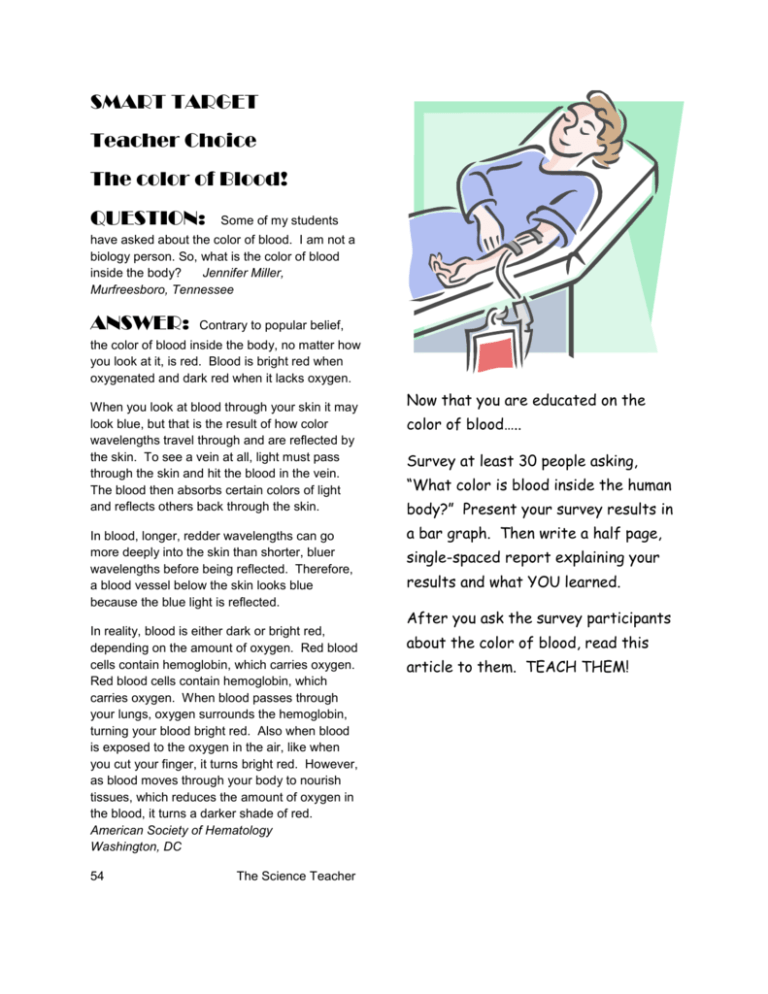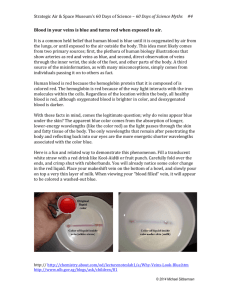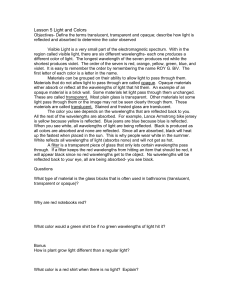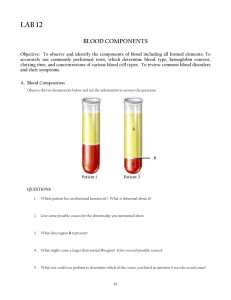Teacher Choice ~ Blood
advertisement

SMART TARGET Teacher Choice The color of Blood! QUESTION: Some of my students have asked about the color of blood. I am not a biology person. So, what is the color of blood inside the body? Jennifer Miller, Murfreesboro, Tennessee ANSWER: Contrary to popular belief, the color of blood inside the body, no matter how you look at it, is red. Blood is bright red when oxygenated and dark red when it lacks oxygen. When you look at blood through your skin it may look blue, but that is the result of how color wavelengths travel through and are reflected by the skin. To see a vein at all, light must pass through the skin and hit the blood in the vein. The blood then absorbs certain colors of light and reflects others back through the skin. In blood, longer, redder wavelengths can go more deeply into the skin than shorter, bluer wavelengths before being reflected. Therefore, a blood vessel below the skin looks blue because the blue light is reflected. In reality, blood is either dark or bright red, depending on the amount of oxygen. Red blood cells contain hemoglobin, which carries oxygen. Red blood cells contain hemoglobin, which carries oxygen. When blood passes through your lungs, oxygen surrounds the hemoglobin, turning your blood bright red. Also when blood is exposed to the oxygen in the air, like when you cut your finger, it turns bright red. However, as blood moves through your body to nourish tissues, which reduces the amount of oxygen in the blood, it turns a darker shade of red. American Society of Hematology Washington, DC 54 The Science Teacher Now that you are educated on the color of blood….. Survey at least 30 people asking, “What color is blood inside the human body?” Present your survey results in a bar graph. Then write a half page, single-spaced report explaining your results and what YOU learned. After you ask the survey participants about the color of blood, read this article to them. TEACH THEM!











